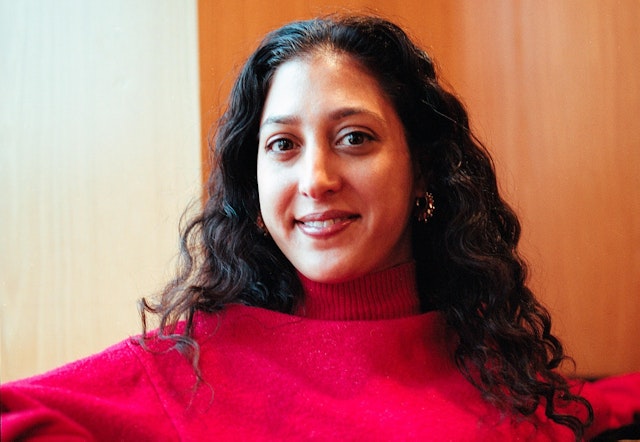Your clients have you pigeonholed. What can you do about it?
In this week’s debate, we ask agency leaders how agencies can avoid becoming pigeonholed by clients.

How should you respond to the challenge posed by generative AI tools?
Marketers want to demonstrate how in tune they are with consumer demands for more socially aware and more representative brands. In many cases, they want agencies that can help them do that in a way that rings true. For some agency businesses, such as Identity Communications, that demand has enabled business growth.
Becoming known for your prowess in this area, however, might lead to an agency’s other capabilities being overlooked by clients. If a company ends up typecast as the go-to shop for campaigns targeting a specific demographic – it might not be invited to pitch for any other kinds of work.
Advertisement
While the primary responsibility for pigeonholing a supplier or partner falls to marketers, agencies aren’t totally without agency. So, how can they avoid being left on the shelf, only to be utilized for special case briefs? How can agencies that start out with a key specialism parlay that into wider briefs (and expand their business)? We asked nine agency leaders how they’ve navigated that issue.
How do you solve a problem like… becoming typecast?
Hannah Campbell, co-founder and managing director, One Twelve Agency
Brands tend to look granularly at your work and pigeonhole you, rarely stopping to ask ‘what else can you do?’. This creates a vicious circle because potential new clients only see case studies reflecting your niche work.
There should be a greater onus on brands and agencies to explore what else independent/culturally-driven agencies can do and to truly support them by expanding their scope of work. We deliberately dial down our external comms around DE&I and cultural marketing to avoid looking hyper-focused but should also work more on shouting internally with brands we already work with about our wider offering.
Advertisement
Christopher Crawford, founder, Elite Media
The question itself, ’How do you solve a problem like...category typecasting?’ is part of the problem, because it assumes that a black or women-owned agency has the ability to impact someone else’s bias. The fact is, the best agencies are those with the best insights into consumer behavior. And experience has shown that the best insights come from those agencies which are as representative of the consumer world as they are of themselves. These agencies have had to speak the voice of a majority tongue while also being fluent speakers of their culture. And the best clients recognize this fact.

Natasha Zialor, global vice-president of campaigns, RanaVerse
Even though brands know diversity should be standard and not a check box, there’s a need to continually fight for your seat at the table, even as a born-and-bred Londoner. To carve out a position that’s hard to pigeonhole, find a point of reference beyond “knowing the culture.” Whether your invaluable little black book, a deep understanding of influencer marketing, or the ability to effectively communicate data and analysis. While culture, trends and equity influence everything, it’s important for us smaller POC-led agencies to differentiate with these tactics, which can’t be questioned no matter the messenger.
Suggested newsletters for you
Michelle Yeadon, co-founder and strategy director at Weirdo
There is one huge reason why coming to a diversity-aware partner is good for all campaign briefs: it leads to more original and more effective creative. But to avoid being typecast, agencies have to prove that more progressive ways of working do produce creative work that’s more relevant to mass audiences. We also have to show that it’s not simply the diversity of our core team that creates the marked difference in what we can deliver – it’s also the process of how we work and our unique connections to subcultures, which aren’t so easy to replicate with recruitment.
Darren Sital-Singh, managing director, Studio PI
At Studio PI, we are increasingly seeing briefs that are based purely on our artists’ talent, fresh perspective and, ultimately, the quality of their images or art. By delivering exceptional work, an agency can avoid being pigeonholed as a specialist. Yes, we have to work harder than other agencies to be seen, heard and put forward for consideration, but we know that once we get the opportunity, we deliver. Specialisms that deliver results are a recipe for broader success.
Rani Patel, founder and managing director, Calling
When 83% of consumers believe companies should stand for something other than profitability and 40% would stop using brands that do not promote inclusion and diversity – progressive advertising is no longer a niche concern. Calling was created in response to these shifts in expectation out in the real world. It’s not about being typecast as a ’purpose’ agency. It’s about looking at this new demand that brands can fill and responding by being a ’modern agency’. Helping today’s communities see themselves in the brands they love. And making sure today’s brands are seen by a modern, nuanced audience.
Alexandra Kennedy, executive vice-president, commercial strategy, My Code
Connecting with multicultural audiences is both a moral imperative and a strategic business decision. To authentically engage with multicultural audiences and tap into their trillion-dollar buying power, brands must move beyond affinity month campaigns and incorporate culturally nuanced advertising into daily marketing agendas. By making this a year-round, always-on priority, brands can position themselves for long-term success and remain competitive and relevant, foster brand loyalty, improve customer retention and increase revenue.
Marina Filippelli, chief executive officer, Orci
As CEO of a multisegment agency, I’m of two minds when it comes to the issue of category typecasting. Many agencies are passionate about diverse markets and their goals typically center around getting companies to either enter that market or further invest and/or strengthen their commitment to the diverse communities which can drive growth for them.
As such, being typecast is not that much of a concern. But on the other hand, we need to be focused on growing past our ’niche,’ and getting our foot in the door given our specialization has thus far been a great way to be able to show all that we can do. It’s a matter of turning that into organic growth in other areas and, for me, that’s where the added value comes into play. I look at this the same way that a digital-focused agency might be asked to take on other types of business—If they can prove their quality of work and commitment to the brands they work with is top-notch, more will come their way.
David Vélez Mejia, strategy director, Remezcla
Multicultural voices are sources of influence, creativity and innovation in the broader culture. For years, multicultural experts have offered their expertise in reaching their specific community, but today 68% of the US population is blending lifestyles and interests of other cultures around them. We need to educate brands and marketers about infusing multicultural expertise beyond the culture it serves. The most influential narratives, personalities and insights of our time lie within cultural blending and brands need to infuse multicultural expertise at their core to amplify resonance among broad audiences.
Want to join the debate? Email me at sam.bradley@thedrum.com and I’ll share next week’s prompt.

